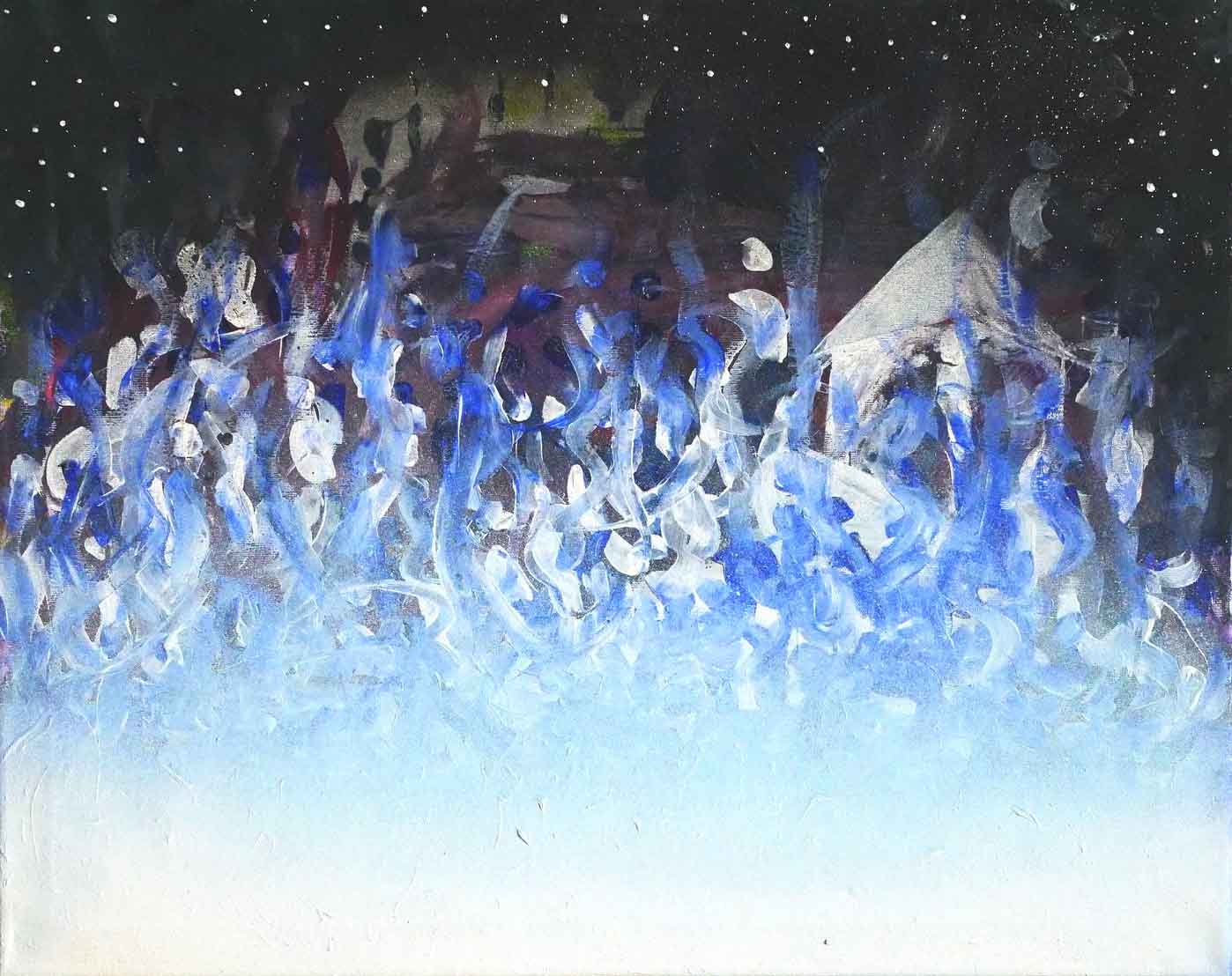Feng Shui Secrets: What seperates "Good" from "Otherworldly"
This is a basic introduction into feng shui. It is one of the most subtle systems you can implement in your life. Step into the trigram. Learn to be with it, characterize it, step into the different elements and see what they are about on a deep level.

Let me show you how make spaces not “nice”, but stunning.
implementing simple Feng Shui principles in your home can:
- create more ease in your life
- attract more luck into your life
- harmonize your surroundings and the people present in the room
- create an unforgettable experience.
Have you ever been in a place which stuns you?
You can’t forget about, because it was just so beautiful?
Trust me,
Thought through feng shui is what seperates the wheat from the shaft.
In Architecture, interior design, whatever.
A place can be “nice”.
But when a place is “stunningly beautiful”,
the designers thought about more than just simple design principles.
They thought
- about the directions,
- the landscape,
- the elements used.
My Journey Into Feng Shui
Last year, I did a course to be a Feng Shui Instructor.
I learned about Punying, a feng shui master who advised Donald Trump for decades.

She was giving him guidance in incorporating feng shui principles into his real estate holdings.
That was aimed to attract Asian investors and is may be one of Trump's closely guarded secrets to business success.
Not to say that Trump particularly is someone to take as a rolemodel,
but it is a good example of Feng Shui is still valued in today’s day and age.
Feng shui has no “effects” it a straight forward way.
Feng Shui is measured by harmony and positive life force cultivation.
And last year, I had a great example to learn from:
I was living in a so called “pool house” in candelaria.

It was a sweet little, half concrete half wooden one room house.
During spring time, when it was not warm enough to fill it yet, they kept the pool in front of it open.
A looot of rain was captured insight.
Over time, as nobody was doing something about it, it got really stinky and fouly. Algae and a lot of mosquito larves in the water, it smelled like exactly that.
At the same time I was diving into feng shui and participating in the course.
We learned that KAN, which symbolizies the element of water, is characterized by the north direction.
And the flow of the water around you is a signifier of the cash flow you receive.
So water: rules money.
The currency — current - sea

And at the same time, I was also broke and trying to find some projects to work on.
So I added one and one together:
The stagnation of water in the front of my house — was a symbol for the stagnation of the cashflow in my life.
The concept of potential or destiny in humans is often referred to as the "Three Lucks" or "Three Factors" that influence a person's life.
These are:
- Heaven Luck 40% (Tian Yun):
This represents the potential that is determined by the stars, astrology, or the cosmic forces.
It's what you're born with, such as the time, date, and place of birth, and is often associated with one's destiny or fate. - Earth Luck 30% (Di Yun):
This is the potential influenced by the physical environment, such as the Feng Shui of your living and working spaces.
It includes how the surroundings, landscape, and placement of objects in your environment affect your life. - Human Luck 30% (Ren Yun):
This represents the potential influenced by personal actions, decisions, and behaviors. It encompasses your efforts, education, hard work, and relationships with others.
It's the part of your destiny that you have the most control over through your own actions and choices.

So the property you live on, has a significant effect on your wellbeing. Said to be 30%. And that, how I learned it, is Feng Shui:
“The surroundings as a resonance field of the soul.”
What is Feng Shui?
Feng Shui (pronounced Fung Schway) is both an ancient art and a complex system of
- divination,
- geomancy,
- and astrology.
It is used for decoration of houses and apartments today, but was initially invented to give direction to the tombs of dead people.
It was a method for providing a smooth transition to the afterlife.
Feng shui has often been misunderstood and oversimplified in the West. Especially since its boom in the 1970s.
Many view it as an over-glorified interior decorating scheme, removed of its rich historical and philosophical context.
I am criticizing this superficial treatment.
True feng shui requires a solid grounding in classical Chinese philosophy.
A in depth untderstanding of chi — how it flows and how to manipulate it.
— What is Chi?
Chi is your life force, the energy flowing through you and everything around you, giving you life. The concept of chi, also spelled Qi, originates from Traditional Chinese Medicine (TCM) and Martial Arts, but the idea of vital life force energy and its role in health appears in many cultures.
in its early context, the term "chi" (also spelled "qi") was used to describe vapor or steam.
For steam to exist there has to be all 4 base elements present:
- Earth to fuel the fire,
- air to fuel the fire,
- and water to evaporate with the fire.
This is what is happening in your body.
The term "Feng Shui" translates to "wind and water," showing the ancient sages' efforts to guide and retain chi using these elements.
Locations that attract water and are shielded from strong winds are considered ideal for harnessing and maintaining chi.
So water retains, and wind guides chi.
There are to known schools of classic feng shui: The form school, and the compass school.
The form school focusses on chi flow in natural sites, focussing on features such as rivers, trees and mountains. The Landscape and balance of elements is crucial for the cultivation of chi.
Then, the invention of the magnetic compass (luopan), enabled the rise of the compass school in the 900s. It focusses on complex calculations involving the directions and astrology.

The compass includes categories related to yinyang, the five elements, and the eight Daoist symbols written down in the ”Yijing” ( Book of Changes), which represent foundational concepts of reality. In English, these Daoist symbols are usually referred to as bagua or the eight trigram

The 5 Elements
Feng Shui revolves around five essential elements: Water, Wood, Fire, Earth, and Metal. Each element represents different aspects of life and energy, and they interact with each other in specific ways. Understanding these elements is crucial to mastering Feng Shui.

The Cycle of Creation
One morning, Water woke up. "I will give life today," she said, flowing through the valley. Seeds drank her in, and Wood sprouted, reaching for the sky.
Wood felt a spark. "I will fuel the world," he said. Fire was born from his branches, spreading light and warmth.
As Fire burned, his ashes mixed with the soil. Earth emerged. "I am the foundation," she said. She provided ground for all to stand on.
In Earth's embrace, Metal formed. "I will shape the world," Metal said. He became tools and structures, holding everything together.

The Cycle of Control
Balance needed control.
Water cooled Fire, keeping him from burning everything. "I am the quencher," she said.
Fire softened Metal, making him useful. "I am the forge," he said.
Metal trimmed Wood. "I am the cutter," he said, keeping Wood in check.
Wood anchored Earth. "I am the anchor," he said, stabilizing the soil.
Earth contained Water. "I am the dam," she said, guiding Water's flow.
That’s it for now.
My Conclusion for Today
As you can see, this interplay between control and generation is what makes life possible here on earth.
Especially interesting for me is that feng shui does not see “air” or “wind” as an element. Instead, it sees wood and metal as separate elements from earth.
The cardinal element system would include wood and metal in earth.
This was a basic introduction into feng shui.
It is one of the most subtle systems you can implement in your life.
The effects are not always direct, but you learn to see pattern as you live along,
Just like the example of the stagnated water in the pool.
But that requires you to take a step into the trigram.
Learn to be with it, characterize it, step into the different elements and see what they are about on a deep level.
Kiss Kiss,
Tarkan
